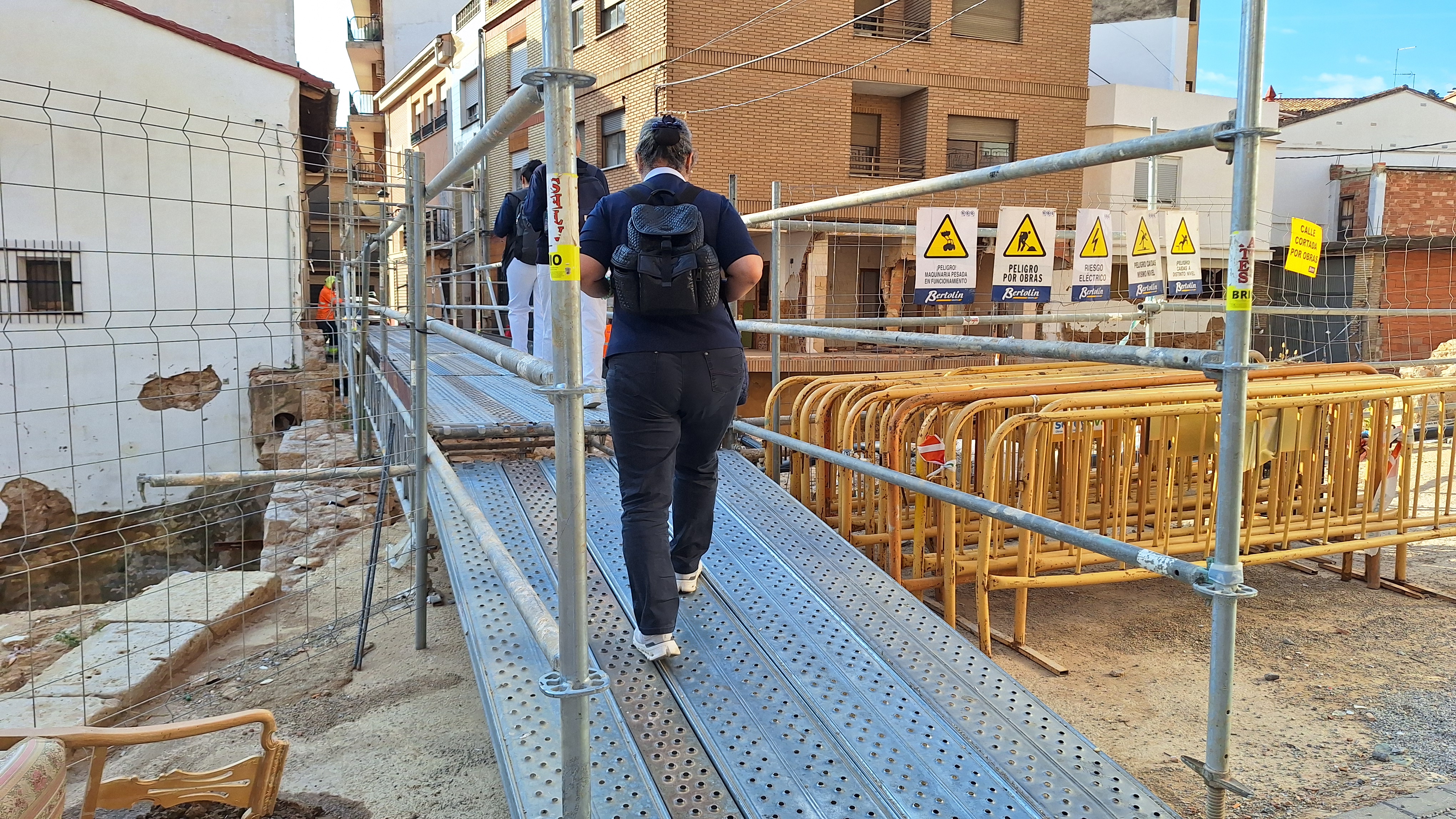Six months have passed since catastrophic floods swept through eastern Spain in late October 2024, but for the residents of the Valencia region, the disaster is far from over. Many areas remain scarred, and daily life is a constant struggle. A team of Tzu Chi volunteers from Germany, the United Kingdom, and Spain recently returned to the hardest-hit areas to conduct a third round of assessments, visiting families door-to-door to prepare for the final phase of assistance and ensure that aid reaches those who need it most.

Lingering Scars of the Flood
In the town of Chiva, the team crossed a makeshift bridge, a temporary replacement for the one washed away by the floodwaters. The scene on the other side was a stark reminder of the flood's power. Kitchens remained filled with debris, and in some places, the ground had collapsed, creating dangerous drops. The damage is not just cosmetic; the structural integrity of many homes has been compromised, leaving families unable to return.
"The water rose all the way to here," recalled 76-year-old Rafa, his eyes still reflecting the fear of that day. "I was in the water, praying." He survived the raging torrent only by cleverly wrapping an electrical wire around his body to hold on. Volunteers found that many elderly residents like Rafa are among the most vulnerable, facing immense challenges in the aftermath.
Echoes of Loss and a Community's Resilience
In the Catarroja area, near the river, the devastation was profound. Older homes, unable to withstand the force of the water, had crumbled. On one wall, the time "20:11" is inscribed—a somber memorial to an elderly resident who could not escape. "They marked the time, 20:11, on the wall of the old man's home," explained German volunteer Shu-Wei Chen (陳樹微). These silent markers bear witness to the tragedy that unfolded.

The destruction in the Picanya district was equally severe. "This area has five bridges because the river runs through it, and all five were destroyed," said Spanish volunteer Sara Kao (高薇琍). The loss of critical infrastructure has made the path to recovery even more difficult.
In the Paiporta district, residents are working hard to restore their homes, but progress is slow. Walls soaked by the flood must be completely stripped and left to dry before they can be rebuilt. For many families, this means a prolonged period of displacement and uncertainty as they wait for the support needed to make their homes livable again.
A Partnership of Compassion
Local organizations have been instrumental in the relief effort. Caritas has been working closely with Tzu Chi to identify and support affected families. "We are so grateful that you have come from so far away to work with us," said Luisa, the head of Caritas in Chiva. "It is an honor to see you here, giving of yourselves without expecting anything in return."

Tzu Chi has also signed a memorandum of understanding with the local government to formalize their joint efforts. Father Javier of the Chiva Cathedral shared his perspective on the collaboration: "People are people. For us, every person is a child of God. When we work together for the common good, we are caring for God's children. Thank God, what a beautiful thing this is."
As volunteers continue their detailed home visits, they are carefully documenting each family's needs in preparation for the upcoming aid distribution, scheduled from July 10 to 15 in Utiel, Chiva, Picanya, Paiporta, Benetusser, and Catarroja. The hope is that this next phase of assistance will provide tangible relief and help these resilient communities take another step forward on their long journey to recovery.
Written by Soh Chin Ong (王素真)
Source: 西班牙洪災半年難復原 慈濟赴重災區籌備發放



